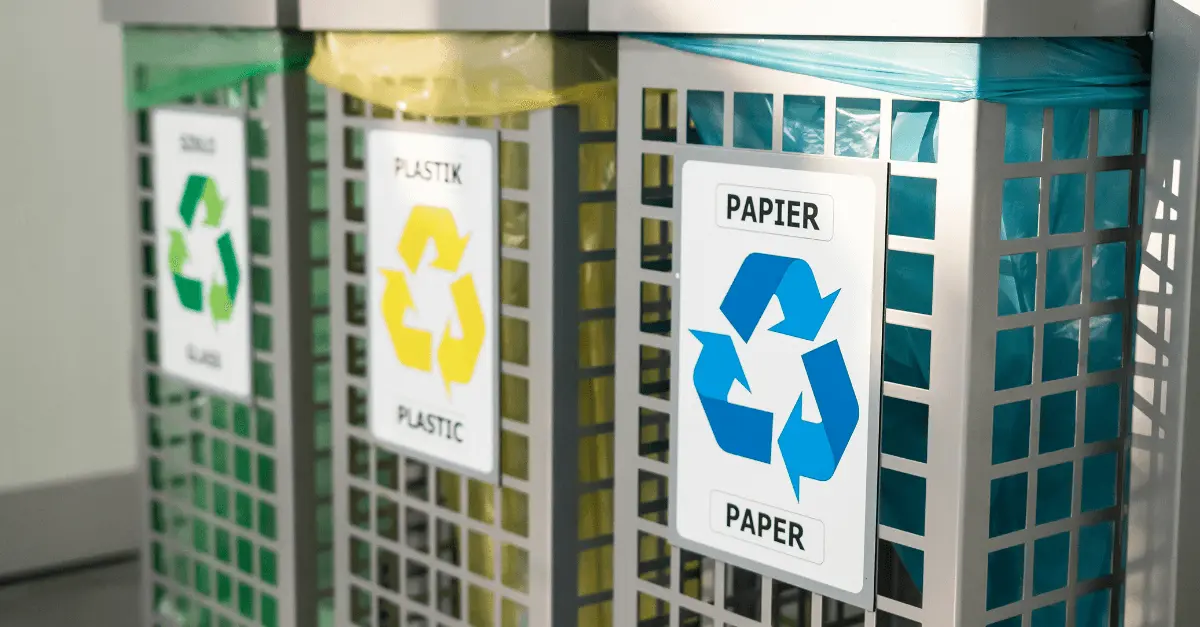Z2Data's SCRM Platform
Build a Supply Chain That Doesn't Break Under Pressure
One platform to manage part, supplier, supply chain, and compliance risk.
Importance of Addressing Human Trafficking & Forced Labor in Electronic Supply Chains
Forced labor is a serious and pervasive human rights issue affecting millions worldwide.

Forced labor is a serious and pervasive human rights issue affecting millions worldwide. According to the International Labor Organization (ILO), the Asia-Pacific region has the highest number of people in forced labor, followed by Africa and the Arab States, with a total of 28 million people being in slave labor in 2021.
This problem is particularly prevalent in the global technology industry, where products are often produced through complex and fragmented supply chains involving many suppliers and subcontractors. It can occur at various stages of the semiconductor supply chain, including the production of raw materials, such as silicon wafers, and the assembly and testing of finished products. In some cases, migrant workers may be recruited under false pretenses and forced to work in hazardous conditions for little or no pay.
There have been numerous reports of forced labor in the technology industry, particularly in countries such as China, where labor laws are weaker and enforcement is often lax. As a result, workers may be subjected to long hours, low pay, dangerous working conditions, and other forms of exploitation, and may be unable to leave their jobs due to threats, violence, or other forms of coercion.
There have also been reports of forced labor in the mining and production of raw materials such as cobalt, mica, tin, and others. Children are often forced to work long hours in dangerous and unhealthy conditions and may be physically and emotionally abused.
The electronics industry uses a wide range of raw materials, many of which are sourced from countries with a high risk of forced labor. For example, cobalt is a critical component of lithium-ion batteries in smartphones, laptops, and other electronic devices. The Democratic Republic of Congo (DRC) produces more than half of the world's cobalt, and there have been reports of forced and child labor in cobalt mines.
The Democratic Republic of Congo (DRC) and surrounding countries in Central Africa have also been linked to the mining of conflict minerals used in a wide range of products, including consumer electronics, jewelry, and automotive parts. Conflict minerals are minerals that are mined in areas of armed conflict, often by forced or coerced labor, and are sold to finance armed groups or contribute to human rights abuses. The most commonly referred to as conflict minerals are tin, tantalum, tungsten, and gold (often referred to as the "3TG" minerals). The mining and trade of conflict minerals have been linked to human rights abuses, including forced labor, child labor, and violence against workers and local communities.
A few other raw materials linked to such practices include:
- Cobalt: As mentioned earlier, cobalt is a critical raw material used in batteries for electronic devices. There have been reports of child labor and other labor abuses in cobalt mines in the Democratic Republic of Congo (DRC), a major cobalt supplier to the electronics industry.
- Coltan: Coltan, or columbite-tantalite, is used in the production of capacitors, which are used in electronic devices such as smartphones and laptops. The majority of coltan is mined in the Democratic Republic of Congo (DRC), where there have been reports of forced labor, child labor, and other human rights abuses.
- Gold: Gold is used in the production of electronic components, electroplating, and bonding wires, is often mined in countries with a high risk of forced labor and other human rights abuses, such as Burkina Faso, Mali, and the DRC.
- Mica: Mica is a mineral used in various electronic products, including capacitors and insulators. Mica is often sourced from mines in India, where child labor and unsafe working conditions have been reported.
- Tin: Tin is used in the production of solder, which is used to connect electronic components in electronic devices. Tin is mined in several countries, including Indonesia, Malaysia, and Bolivia. There have been reports of forced labor and other labor abuses in the tin mining industry in these countries.
- Tungsten: Tungsten is used to produce electronic components such as light bulbs and transistors. Tungsten mining has been linked to forced labor and human rights abuses in countries like the DRC and Myanmar.
In addition to the raw materials used in electronic products, there are also risks of labor abuses in producing electronic components and finished products. For example, there have been reports of labor abuses in electronics manufacturing facilities in countries like China, including long working hours, low wages, and poor working conditions.
To address these issues, governments and international organizations have implemented regulations and guidelines for companies operating in the electronics industry. Some of which include:
- US Forced Labor Prevention Act (UFLPA): The UFLPA requires companies to disclose the steps they have taken to prevent forced labor in their supply chains and prohibits the import of goods made with forced labor.
- German Supply Chain Due Diligence Act (SCDDA): The SCDDA stipulates that companies must take remedial actions if they cause or are connected to adverse environmental or human rights impacts in their operations and supply chains.
- UK Modern Slavery Act: The UK government introduced the Modern Slavery Act in 2015, which requires companies with a revenue of more than £36 million to publish annual statements outlining the steps they have taken to prevent modern slavery in their operations and supply chains.
- California Transparency in Supply Chains Act: The California Transparency in Supply Chains Act, enacted in 2012, requires companies with annual revenues of more than $100 million doing business in California to disclose their efforts to eradicate slavery and human trafficking from their supply chains.
- EU Non-Financial Reporting Directive: The EU Non-Financial Reporting Directive requires certain companies to disclose information on their policies, risks, and outcomes related to social, environmental, and human rights issues, including forced labor.
- Australian Modern Slavery Act: The Australian government introduced the Modern Slavery Act in 2018, which requires companies with an annual revenue of more than $100 million to report on their efforts to identify and address the risks of modern slavery in their operations and supply chains.
These regulations aim to increase transparency and accountability in supply chains and encourage companies to take action to address forced labor. Companies that fail to comply with these regulations may face penalties or legal action, which can have significant financial and reputational consequences.
There also have been efforts by governments, civil society organizations, and the private sector to address the issue of conflict minerals. For example, the Dodd-Frank Wall Street Reform and Consumer Protection Act in the United States requires companies to disclose their use of conflict minerals in their products and supply chains and to report on their efforts to ensure that these minerals are sourced responsibly. Other initiatives, such as the Responsible Minerals Initiative, provide tools and resources for companies to trace the origin of minerals in their supply chains and ensure that they are not contributing to human rights abuses or conflict.
Additionally, the Organization for Economic Cooperation and Development (OECD) has developed guidelines for responsible mineral supply chains, including due diligence processes to identify and address risks of forced labor and human rights abuses in the mining and production of raw materials. The Electronic Industry Citizenship Coalition (EICC) has also developed a code of conduct for its members that includes requirements for responsible sourcing of raw materials, fair labor practices, and respect for human rights in the supply chain.
To comply with the various global regulations and guidelines, companies in the electronics industry have begun creating remediation policies, conducting supplier audits, and engaging with stakeholders to promote transparency and accountability in their supply chain. Some companies have also taken steps to improve factory working conditions, such as increasing wages and improving safety measures. However, more must be done to eliminate forced labor, child labor, and other human rights abuses from the electronics industry supply chain.
The electronics industry is complex, and the global supply chains can be difficult to trace. Many electronic products comprise of dozens or hundreds of components, each of which may be sourced from multiple suppliers in different countries. This complexity can make it challenging for companies to identify and address risks of forced labor and other labor abuses in their supply chains. In addition to the raw materials used in electronic products, there are also risks of forced labor and other labor abuses in the production of electronic components and finished products.
It is critical for companies in the electronics industry to take a proactive approach to address antislavery, child labor, and human rights issues in their supply chains. This can include implementing robust due diligence processes and using tools to create visibility, engage with stakeholders, and provide transparency and accountability, within their supply chains.
Frequently Asked Questions





The Z2Data Solution
Z2Data is a leading supply chain risk management platform that helps organizations identify supply chain risks, build operational resilience, and preserve product continuity.
Powered by a proprietary database of 1B+ components, 1M+ suppliers, and 200K manufacturing sites worldwide, Z2Data delivers real-time, multi-tier visibility into obsolescence/EOL, ESG & trade compliance, geopolitics, and supplier health. It does this by combining human expertise with AI and machine learning capabilities to provide trusted insights teams can act on to tackle threats at every stage of the product lifecycle.
With Z2Data, organizations gain the knowledge they need to act decisively and navigate supply chain challenges with confidence.


.svg)






